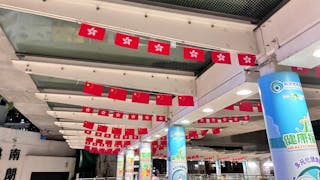編按:儘管《港區維護國家安全法》(簡稱「港區國安法」)草案全文尚未公布,6月20日官方新華社發表的〈草案說明〉已經披露了主要內容。終審法院首任首席法官李國能周二(23日)在《明報》發表文章,對於〈草案說明〉列明「行政長官有權指定若干法官審理涉及危害國家安全的案件」,以及「中央機構有權對危害國家安全的案件行使管轄權」這兩點表示憂慮,他的主要觀點如下:
一、李國能開宗明義指出,全國人大常委會法工會就「港區國安法」草案的〈說明〉,表示會跟隨香港法律原則,包括無罪推定(The Presumption of Innocence)。同沒有建議法例具有追溯力。
二、對於行政長官有權指定若干法官審理涉及危害國家安全的案件,李國能認為會損害司法獨立。理由是根據《基本法》,行政長官須根據獨立委員會,即司法人員推薦委員會的推薦來委任法官。挑選法官是基於他們的司法素養和專業才能,法官將不受任何干預,獨立地行使司法權力。由於司法機關獨立於行政機關,因此應由獨立的司法機關決定審理該些案件的法官,不受行政機關的任何干預。
三、更何況,行政長官未必具有所需的知識,如作為法官的經驗及專長來自行挑選法官。李國能認為,行政長官作為將在香港成立的維護國家安全委員會主席,並不適宜自行挑選法官。
四、即使上述觀點不被接納,李國能也認為,行政長官挑選法官時,必須根據終審法院首席法官或司法人員推薦委員會的建議,使之能保證決定是基於專業和獨立的基礎。
五、李國能關注的另一點,是〈草案說明〉中列明,駐港國家安全公署和國家有關機構在特定情形下對極少數危害國家安全犯罪案件行使管轄權, 他擔心中央機構在行使管轄權時,一些案件會在內地處理及審理,從而令被告不能享有香港司法程序的保障。儘管這種管轄權只會在極例外的情况下行使,但仍會破壞香港法院在《基本法》下獲授權行使的獨立司法權力。
英文版全文
1. It is unfortunate that the draft law has not yet been published. But it is significant to note that the Explanation of the Legislative Affairs Commission of the NPCSC had stated that the legal principles of our system would be followed, including the presumption of innocence. There is no suggestion that the law would be retrospective.
2. I wish to comment on two matters affecting the Judiciary.
3. First, it was stated that the Chief Executive would have the power to select the judges who would deal with national security cases. This would be detrimental to the independence of the Judiciary.
4. Under the Basic Law, judges are appointed by the Chief Executive (CE) on the recommendation of an independent commission, that is, the Judicial Officers Recommendation Commission. Judges are chosen on the basis of their judicial and professional qualities and exercise their judicial power independently free from any interference.
5. The Judiciary is independent from the executive authorities. It is the independent Judiciary which should decide on the judges who would hear these cases without any interference from the executive authorities.
6. Further, the CE would not have the required knowledge of the experience and expertise of the judges to make the selection on his or her own. And the CE’s chairmanship of the National Security Commission to be established in Hong Kong would make it inappropriate for the CE to make the choice on his or her own.
7. If this view is not acceptable, then the arrangement should at least provide that the CE’s selection of these judges must be based on the recommendation of the Chief Justice or that of the Judicial Officers Recommendation Commission. This would ensure that the choice will be made on a professional and independent basis.
8. Secondly, the Explanation stated that under specific circumstances, the central authorities may exercise jurisdiction over a tiny number of criminal cases that jeopardise national security. This also raises serious concern.
9. When exercised, these cases will be dealt with and tried in the Mainland. The defendant would not enjoy the safeguards of our judicial process. Although this jurisdiction could only be exercised in the most exceptional circumstances, it would undermine the independent judicial power which our courts are authorized to exercise under the Basic Law.
The Hon Andrew Li Kwok Nang
First Chief Justice of the HKSAR 1997-2010




































